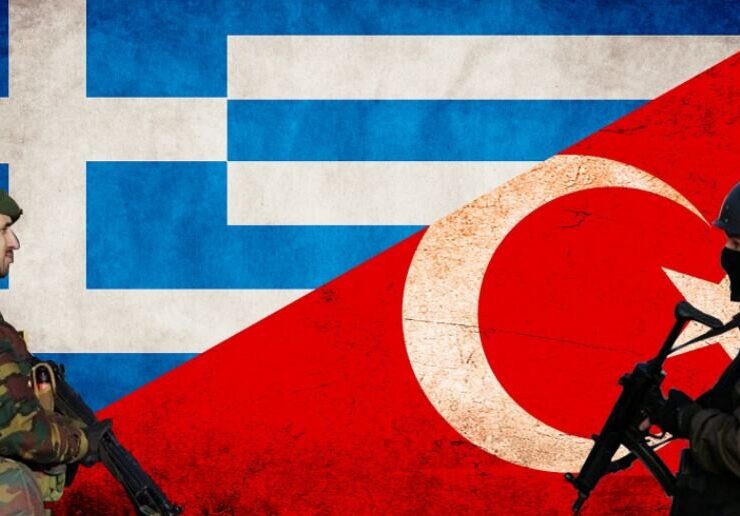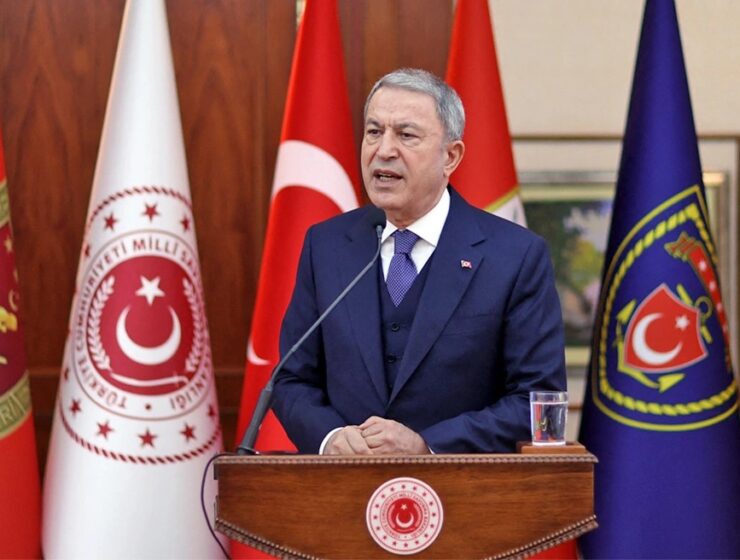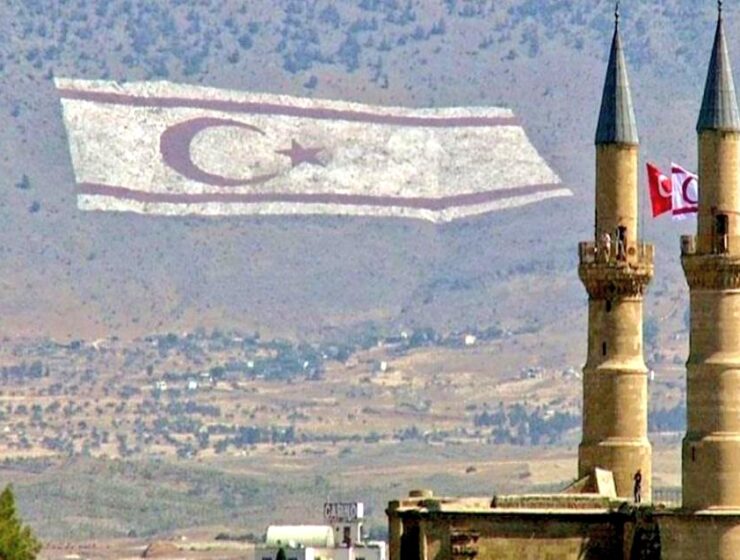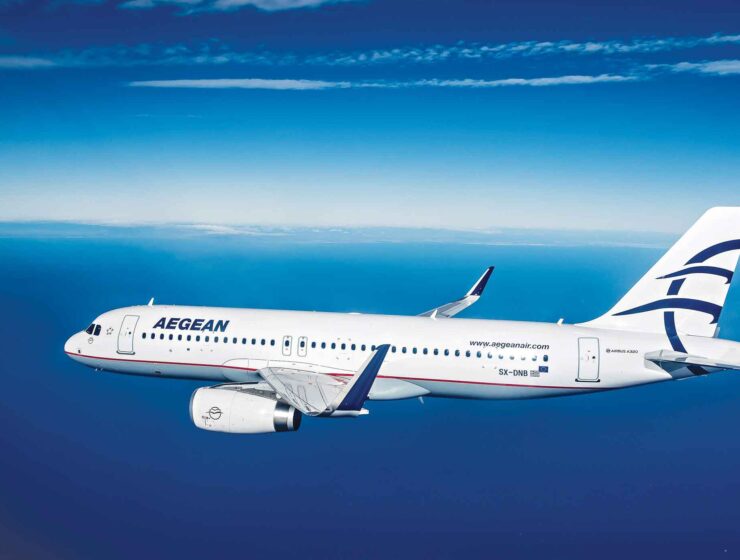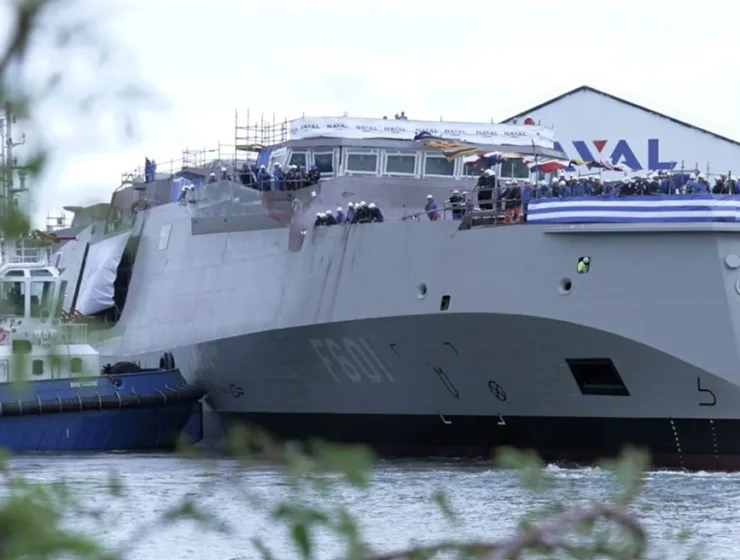Airbus is capitalizing on Europe’s rising military budgets, negotiating new defence and space contracts as nations boost spending amid geopolitical tensions. The aerospace giant also sees relief in its jetliner business, with execs noting that snarled supply chains are finally easing, paving the way for smoother production.
Tag: geopolitical tensions
Turkey is preparing to ratify framework military agreements with Albania, Kosovo, and North Macedonia, enhancing its presence in the region and expanding its influence around Greece. These agreements, signed in 2024, aim to deepen military relations and address regional security threats amidst heightened geopolitical tensions in the Eastern Mediterranean.
Despite Greece’s strong objections, France has confirmed it will not impede Turkey’s acquisition of Meteor air-to-air missiles, leaving Athens feeling betrayed. French Armed Forces Minister Sébastien Lecornu emphasized that the deal is outside France’s control, as the export of British weaponry, including the Meteor missile, ultimately falls under the jurisdiction of the UK. This development raises significant concerns for Greece, which has been modernizing its air force to counterbalance Turkey’s military enhancements amid ongoing regional tensions.
Rumors of the US potentially moving its nuclear arsenal from Incirlik Air Base in Turkey…
At the recent international tourism exhibition held in Helsinki from January 16-19, 2025, an unexpected…
The United States Patent and Trademark Office (USPTO) has requested further clarifications from Turkey regarding its use of the term “TurkAegean” for tourism promotion. Greece raised concerns that the trademark reflects geopolitical ambitions related to the Aegean region. Turkey’s Tourism Promotion and Development Agency has been instructed to provide evidence supporting the choice of the term, with potential sanctions looming if it fails to comply. Legal experts anticipate that the case could take several more years to resolve.
Hulusi Akar, former Turkish Minister of Defense, made assertive statements regarding Turkey’s regional policies, highlighting the country’s firm stance on Cyprus and suggesting that Turkish soldiers could swim to Kastellorizo. He also emphasized the potential for future cooperation with Syria if stability is achieved, while criticizing the U.S. over the F-35 program. Akar underlined Turkey’s sovereign rights in the Eastern Mediterranean and expressed Turkey’s ongoing commitments as a guarantor country.
Tensions have risen between Turkey and Greece following the European Union’s release of a new maritime map that extends Greece’s territorial waters to 12 nautical miles. This decision, which aligns with Greece’s claims under international law, has been met with strong opposition from Turkey. Greece views the EU’s support as a diplomatic win and a validation of its sovereign rights, highlighting the complex geopolitical dynamics in the Eastern Mediterranean region.
Turkey is voicing concerns over the arrival of Israel’s Iron Dome-type air defense system in Cyprus, seeing it as part of a broader strategy to enhance the island’s defense capabilities amid rising military ties with Israel. The move follows the lifting of the U.S. arms embargo and growing military cooperation with Western countries, sparking strong reactions from the Turkish Cypriot administration, which accuses Cyprus of escalating regional tensions.
The Greek Defence Ministry has strongly refuted recent claims made by Turkish Defence Minister Yasar…
As tensions escalate in the Middle East, numerous international airlines have suspended flights to the region. Major carriers like Air France-KLM, Lufthansa Group, British Airways, and Emirates have halted services to destinations such as Tel Aviv, Beirut, and Baghdad, citing security concerns and airspace restrictions.
France has faced criticism for selling Greece a fleet of highly advanced Belh@rra frigates, equipped with more potent weaponry than those destined for the French Navy itself. This decision has raised questions about French defense strategy and its implications for regional security.
Greece is taking significant steps to bolster its national security, particularly its air defence capabilities…
Russia has begun mass production of “KUB-M” mobile nuclear shelters amid escalating tensions in the Ukraine war. These container-like shelters, accommodating up to 54 people, provide 48-hour protection from nuclear radiation, explosions, and other hazards. The move follows President Vladimir Putin’s decree expanding conditions for nuclear weapon use, reflecting growing geopolitical tensions.
In a rare and informal meeting, Turkish President Recep Tayyip Erdogan, Greek Prime Minister Kyriakos Mitsotakis, Cypriot President Nikos Christodoulides, and Albanian Prime Minister Edi Rama exchanged views on the U.S. presidential election and international developments at the European Political Community summit in Budapest. The discussion marked a symbolic moment of dialogue amidst longstanding regional tensions.
NATO’s nuclear exercise “Steadfast Noon” began this week in Western Europe, involving about 60 fighter jets, including those from Greece. The drills, which simulate nuclear operations with virtual weapons, aim to bolster the Alliance’s military readiness amid global threats. NATO Secretary General Mark Rutte highlighted the importance of nuclear deterrence, asserting that the exercise sends a strong message to adversaries like Russia.
Greek shipping companies are increasingly targeted by Yemen’s Iran-backed Houthi rebels, with several warning emails causing alarm in the industry. As geopolitical tensions rise in the Middle East, navigation through the Red Sea has become perilous, forcing numerous companies to reroute their vessels via longer routes around Africa.
The email campaign, which has not been previously reported, indicates that Houthi rebels are casting their net wider and targeting Greek merchant ships with little or no connection to Israel.
The threats were also, for the first time in recent months, directed at entire fleets, increasing the risks for those vessels still trying to cross the Red Sea.
Yemen’s Houthi rebels have threatened Greek shipping companies with attacks on vessels linked to Israel in the Red Sea. The Houthis’ warning emails, part of an escalating campaign, have prompted some companies to avoid the area, raising concerns over maritime security and crew safety.
Growing fears of a widening conflict in the Middle East sent shockwaves through European stock markets on Wednesday, with the Athens Exchange (ATHEX) suffering its fourth consecutive day of losses. The sharp increase in trading volume underscored the seriousness of the selloff, as investors reacted to the escalating geopolitical uncertainty.


